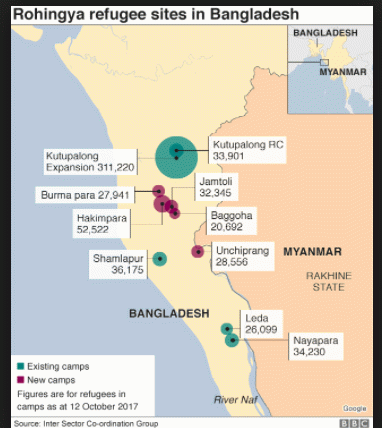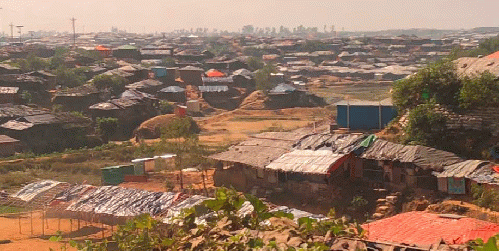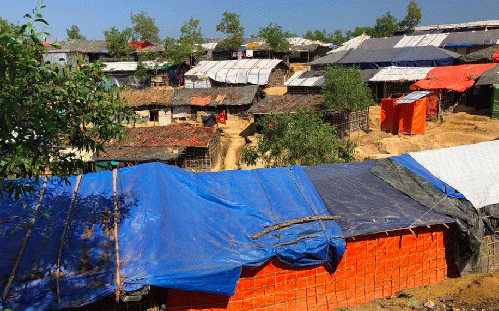I just returned from Bangladesh, a small country on the Indian sub-continent that has a huge population of 165 million, one-half the population of the United States -- in an area the size of Louisiana (50,000 square miles).
Bangladesh deals with annual disastrous typhoons from the Bay of Bengal and the massive floods that routinely submerge large parts of the small country.
The latest flood in Bangladesh is not of water, but of humanity.
Over 1 million ethnic Rohingya, whose existence has been documented from the 7th century in the Rakhine province of Myanmar, have fled into a very small area of neighboring Bangladesh, on the peninsula south of the city of Cox Bazar, to escape the murderous actions of the Myanmar military that has burned villages, raped and murdered men, women, children, the elderly in the most horrible ways. The Rohingya are Muslim while the dominant religion of Myanmar is Buddhism. Rohingya were not given citizenship of Myanmar by the 1982 citizenship act passed during the reign of the military government. They are considered Bangladeshi migrants, not as citizens of Myanmar.
In the humanitarian spirit of those with the least helping those with the least, the Bangladesh government has not turned away the flood of Rohingya refugees. Bangladesh's Prime Minister Sheikh Hasani has famously said, "We are a country of 165 million, we can provide shelter for another 1 million in need." And they are doing exactly that!!
I went to Bangladesh with the Malaysian NGO MYCare. MYCare has humanitarian projects in 22 countries and is partnering with a Bangladesh NGO, the Allama Faizullah Foundation as a part of the international effort to provide food and supplies to the huge number of Rohingya refugees.

OB/GYN Dr. Fauziah from Malaysia; Beatrice, Midwife from Italy; Yuki, surgeon from Japan.
(Image by Photo by Ann Wright) Details DMCA
Dr. Fauziah Hasan, an OB/GYN physician who was the medical doctor recently on the 2016 Women's Boat to Gaza, was assessing medical needs in the Rohinyga refugee camps, particularly for women. Refugee camp administrators are estimating that between January and August 2018, 70,000 women will give birth in the refugee camps. Dr. Fauziah brought with her portable ultra sound equipment that she used in the mobile clinics with which she worked. Other members of the MY Care mission were Ummu Fatima Al Zaaraf Zulkifli and Ariej Basri who have done refugee work with Syrian refugees in Jordan.
(Note: You can view every article as one long page if you sign up as an Advocate Member, or higher).








